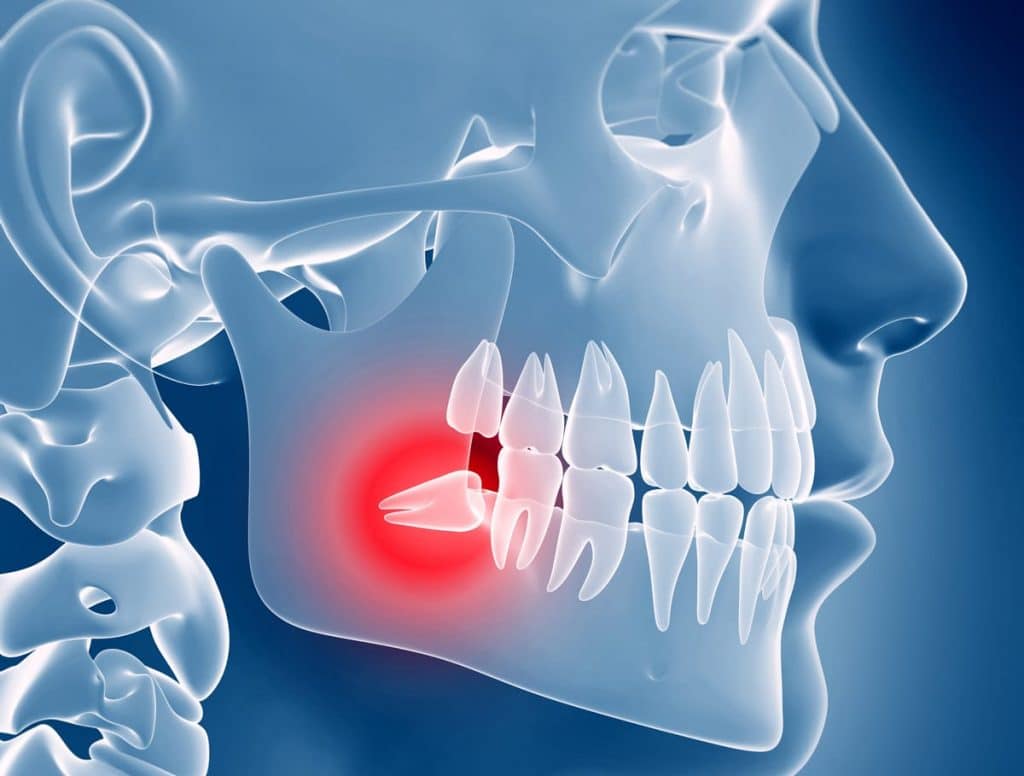With age comes wisdom. Especially wisdom teeth! Did you know that wisdom teeth are the last set of molars to emerge in your mouth? People often get Wisdom Teeth in their late teens or early twenties. At times these teeth can become a precious asset to your mouth if strong and correctly aligned, but mostly, they are poorly aligned and need removal.
Why do they cause Problems?
When wisdom teeth are not properly aligned, they may place themselves horizontally, be slanted toward or away from the second molars, or be inclined inward or outward. Misalignment can crowd or destroy neighboring teeth, the jawbone, or nerves. If the wisdom teeth only partially develop, they can trouble your oral hygiene. Wisdom teeth also can be impacted — they are enclosed within the soft tissue and/or the jawbone and there just isn’t room for them to break through the surface. Therefore they only partially break through or erupt through the gum. This can actually lead to tumors or cysts, which can further lead to the destruction of other healthy teeth and the jawbone if left untreated at the proper time. Another issue is that they are so far back, therefore can be difficult to clean. This causes a risk for infection and tooth decay.
First Signs and Symptoms of Wisdom Teeth coming in:
- Bleeding or tender gums
- Swelling of the gums or the jaw
- Pain and stiffness in the jaws
- A bad taste in the mouth or unpleasant breath
- Trouble in opening your mouth
- Triggered headaches
Treating your Wisdom Teeth in Sugar Land, TX!
Ask your Dentist in Sugar Land, TX, about the positioning of your wisdom teeth. Before making any decisions, your dentist will analyze your mouth and take an X-ray. Together, you and your specialist can discuss the perfect course of treatment. If your dentist recommends the Wisdom Tooth Extraction, this is only because to avoid a more painful or complicated extraction that might have to be performed some years later. Removal is pretty easy in young people, when the teeth roots are not still completely developed and the bone is less dense. For aged people, recovery and healing time generally takes longer.
Regular visits at Floss Dental let your dentist to check your wisdom tooth and your overall oral health if the tooth does not require to be removed.
How Are Wisdom Teeth Removed?
Before your wisdom teeth are removed, the teeth and the surrounding tissue will be numbed with a local anesthetic. A wisdom tooth that is entirely erupted through the gum can be extracted easily. However, a wisdom tooth that is below the gums and rooted in the jawbone will need an incision into the gums and then removal of the section of bone that lies over the tooth. Usually, a tooth in this condition is extracted in tiny parts instead of removed in one piece to reduce the amount of bone that requires to be removed to pull the tooth out.
Cure after Extraction
- Stick to liquids and soft foods for some days.
- Avoid smoking, chewing gums or using straws.
As always, taking care of your teeth and visiting your dentist regularly is a good step towards overall health.
